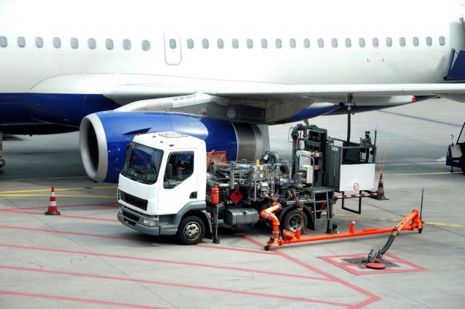
It goes without saying that the past few months have been challenging for the airline industry as a whole. There have been enormous economic challenges resulting in laying off of staff, airline closures and downsizing, as well as technical challenges with 18 000 aircraft parked back in April 2020. The challenge being that these parked aircraft pose the risk of microbiological contamination in their fuel tanks and systems. To compound the problem further, one of only two approved biocides registered for use in the aviation sector was withdrawn from the market at the same time as the COVID 19 pandemic struck.
During this difficult period, IATA and our Strategic Partners have come together to assist the airlines on this front, by bringing the industry fuel experts together to address the registration of a biocide for use in Europe, defueling aircraft containing biocide and practical solutions for the restart of operations. We also conducted a Virtual Fuel Forum, Commercial Fuel Session, and Technical Fuel Session on relevant topics in our industry as well as a Webinar to make Airlines and Maintenance Repair Organizations aware of the correct use of microbial test kits that are listed in the IATA Guidance Material on Microbiological Contamination in Aircraft Fuel Tanks .
Another noteworthy topic is aircraft fueling filtration. In response to the incident which occurred in Surabaya involving the migration of Super Absorbent Polymer (SAP) from Filter Monitor elements onto the aircraft causing thrust control issues, IATA established a Special Interest Group. On 14 November 2017, upon conclusion of their findings, it was announced to the global community that filter monitors would be phased out of all aviation fuel handling systems. This was followed by the Energy Institute (EI) announcing that they would be withdrawing the standard for Filter Monitors EI 1583 7th edition by no later than 31st December 2020.
IATA, A4A and JIG established a Joint Industry Group(JIPL) to test new filtration options to replace Filter Monitors in real world conditions. The first technology to be tested was Dirt Defence Filters (DDF) in combination with Electronic Water Sensors (EWS) and these have been included for use in the JIG Standard (Bulletin 130) and ATA 103 Standard (Bulletin 2020.3) in August 2020.
Unfortunately, the industry will not be able to replace all filter monitors by 31 December 2020 when the Energy Institute withdraws EI1583 7th edition, as there is just insufficient capacity for retrofitting and building new equipment fitted with Filter Monitors. However, IATA, A4A and JIG will be announcing a phase out date before the end of the year, based on the current amount of filter monitor equipment out in the field. Filter monitors will remain in JIG, ATA and IFQP standards up until the phase out date, with the strict adherence to JIG Bulletin 105 and ATA Bulletin 2017.2 to mitigate the risk of SAP migration.
IATA and our Strategic Partners are committed to supporting airlines in a safe start of operations during the ongoing COVID 19 crisis and continue evaluating safe and fit for purpose fuel filtration for our industry.
Mark Vaughan
IATA Technical Fuel Team